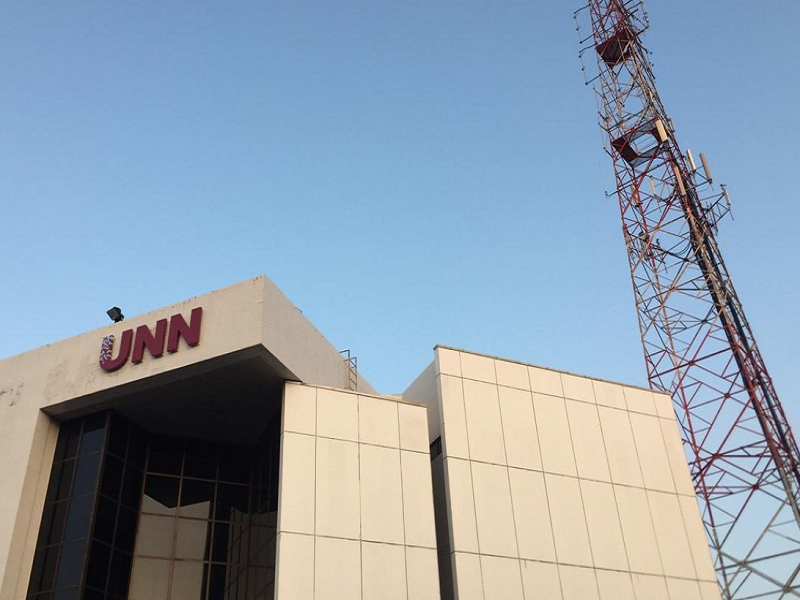


BY James Kon
Unified National Networks (UNN) is in the final stages of getting the 5G network infrastructure ready for launch in the Sultanate this year. To date, 90 per cent of the base stations in the country are already modernised and in place with the technology to start 5G services in the country.
In view of the upcoming transition, it is ideal for consumers to be updated on what 5G is and what it entails.
Since joining the National 5G Taskforce in 2020 and making public its stance on 5G, UNN has established proof of concept within a small number of locations around the nation to study the applications of equipment to the network, consumer needs and how 5G connectivity can be implemented across the country.
The case studies contributed to the establishment of UNN’s national modernisation project to expand radio access network (RAN) and upgrade its broadband network to address the increasing traffic and data volume in the Sultanate.
A UNN article published in April 2022 detailed the differences between previous generations of mobile networks and 5G, explaining that the first generation (1G) delivered analogue voice, second generation (2G) introduced digital voice, third generation (3G) brought mobile data, and fourth generation (4G) ushered in the era of mobile broadband.
The fifth-generation (5G) cellular network technology aims to provide massive bandwidth coupled with network capacity, ultra-low latency, as well as enhanced availability and reliability.
5G promises significant speed upgrades, which many consumers translate to faster cell or Wi-Fi services. While it is touted to support download speeds of up to 300 megabits per second (Mbps) compared to 20-80 Mbps for 4G, the practicality of 5G is expected to hasten the digital transformation of the country and its people – from healthcare to education, gaming and countless other benefits that will change the way we go about in our day-to-day lives.
If integrated successfully in digital transformation projects, the 5G network will provide a unified, more capable interface with an extended capacity to enable next-generation user experiences, empower new deployment models and deliver these new services.
The 5G network can expect to change business and consumer technology in the form of:
IMMERSIVE EXPERIENCE
5G can drive new, immersive Internet of Things (IoT), mobile, home, work and travel experiences. Its low latency could benefit a wide variety of connected devices such as self-driving car or the emergence of autonomous vehicles, for example, which combines artificial intelligence and IoT to help reduce accidents due to vehicles being interconnected with each other and in constant communication.
5G can also affect the way we make purchases. The COVID-19 pandemic has seen growth of online platforms (such as Instagram and WhatsApp) in Brunei Darussalam to ease the manner in which we purchase food and other essentials.
With 5G, the IoT will enable devices and every day appliances to make payments, for example, paying for fuel by pressing a button in your vehicle, or ordering groceries with your fridge.
IMPROVED AND ENHANCED HEALTHCARE
Aside from low latency and high capacity, 5G’s potential also comes from its reliability to create efficiencies and bring new products and services to healthcare entities. An example is the quick transmission of large imaging files, where as soon as a patient leaves the x-ray room, the film is already on its way to the doctor.
The pandemic has pushed clinics to carry out consultations online in the Sultanate.
With 5G technology, the tele-medicine market can expect to grow further as the network can support real-time high-quality video to handle telemedicine appointments and real-time monitoring.
Other aspects where healthcare can benefit includes improving of augmented reality (AR) and virtual reality (VR), enhancing the doctor’s ability to deliver innovative, less invasive treatments, which in turn, reduces pain and anxiety for patients by producing calming, distracting content via 5G-enabled AR and VR.
NEW CAPABILITIES FOR EDUCATION
The pandemic has forced students and teachers globally to log onto platforms such as Zoom, Skype and MS Teams to carry out their studies and lectures. When logging into these platforms, there is propensity to lag and break in connectivity, which impacts educational delivery.
With 5G, these video conferencing platforms are expected to improve in quality and reliability around the globe, while skills such as lab work or hands-on experiences can be integrated into AR and VR for an immersive classroom experience.
The revolution of the educational environment can increase students’ and professionals’ flexibility to newer paths of engagement – not merely on how to use these advanced technologies, but also how to develop and create with them.
The very existence of 5G provides a huge opportunity for innovative ideas, new products and services. Additionally, plentiful useful applications are being developed, tested and implemented around globally for us to refer and adopt to serve us better.
According to the World Intellectual Property Organization (WIPO) 2020 global innovation index edition, Brunei Darussalam is ranked 71 out of 131 countries on the overall index ranking, while achieving the 59th place in the Information and Communication Technologies (ICTs) infrastructure specific thrusts.
With the modernisation and investments UNN has been making to the national infrastructure over the past three years, the ICT ranking improved to 46 in 2021. The Sultanate could be ranked even higher when 5G network technology is launched this year.
-- Courtesy of Borneo Bulletin